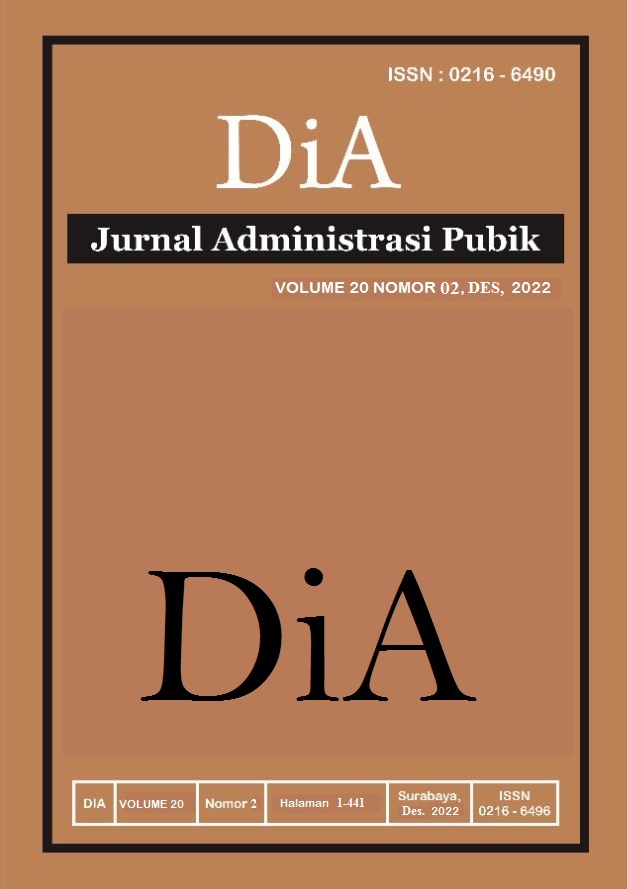POLICY IMPLEMENTATION ANALYSIS OF PERFORMANCE MANAGEMENT SYSTEM CIVIL SERVANTS TANGERANG CITY
DOI:
https://doi.org/10.30996/dia.v20i02.6699Keywords:
Policy implementation, the Performance management system of Civil ServantsAbstract
One of the bureaucratic reform agendas is to improve the performance of the apparatus as public servants, through the application of the principle of merit as a benchmark for the implementation of the management of the State Civil Apparatus, which includes aspects of performance management. Therefore, apparatus performance management is an important thing as a benchmark for achieving organizational goals. The purpose of this study is to analyze the causes of the non-optimal implementation of the performance management system policy for the Tangerang City Civil Servant and provide a description of the more professional model of implementing the PNS performance management system in the City of Tangerang. The research method used is qualitative research, primary data collect through in-depth interviews with Tangerang City Civil Servants purposively. Based on the results of the research, it is known that the cause of the performance management system is not optimal because it is not in accordance with the standards and objectives of the applicable policy, all of the resources as policy implementers have implemented the policy but have not been maximized at every stage, the support of technological resources with the construction of e-performance applications and Information Systems Management of the State Civil Apparatus has not been effective in presenting employee performance profile data, the importance of setting clear standards and objectives for each stage of the performance management system implementation , maximizing the role of the apparatus resource assessor to provide guidance and counseling training for performance appraisal officials, building a performance management information system that integrates all stages of performance management, and strengthens the commitment and support of all management to implement the performance management system consistently.
Downloads
Downloads
Published
How to Cite
Issue
Section
License
The DiA journal allows authors to retain the copyright of their papers without limitation. Authors may grant publishers non-exclusive publishing rights to publish articles. Granting first publishing rights to publishers also qualifies as unlimited copyright (because there are no restrictions imposed by publishers on author copyright).







